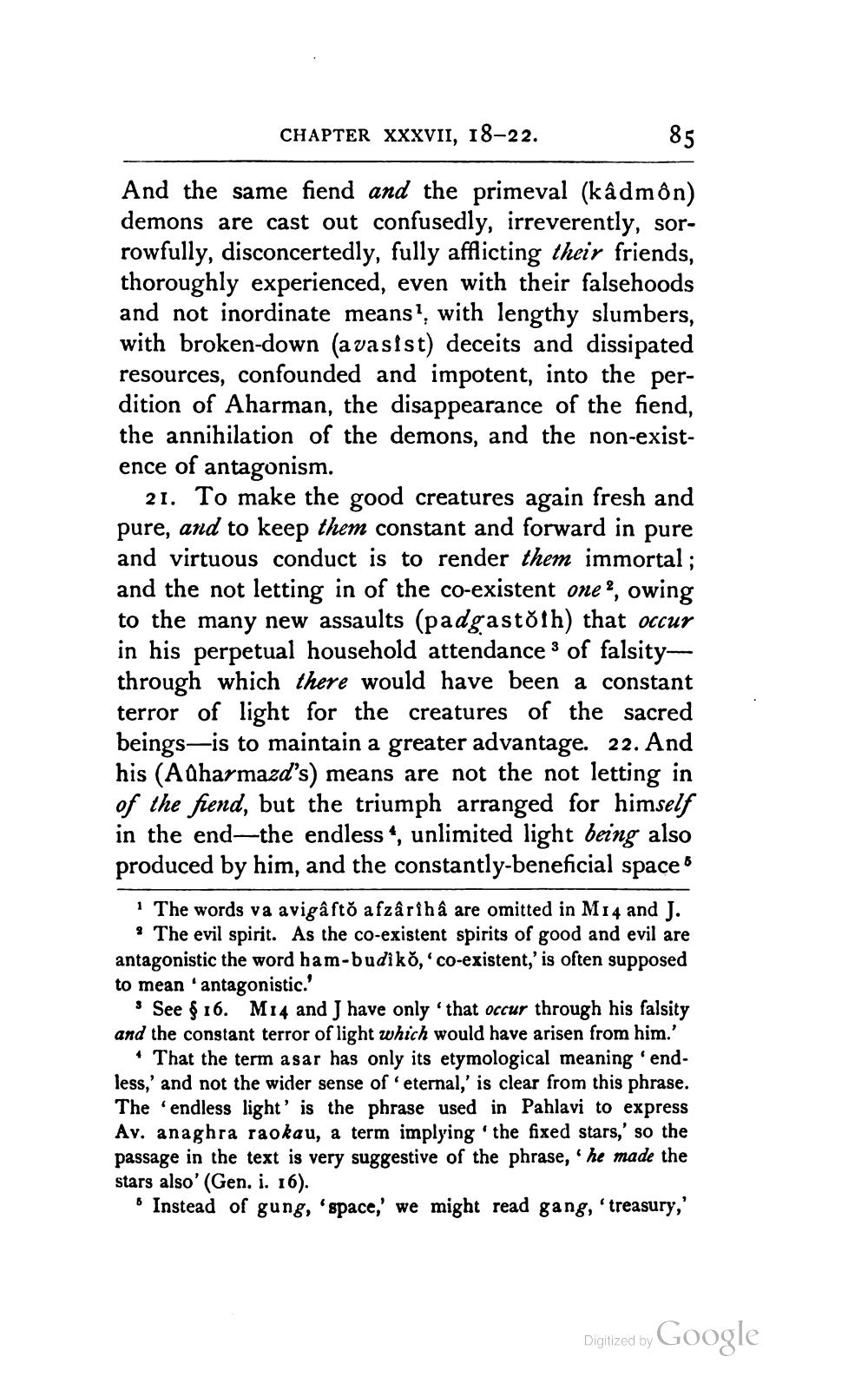________________
CHAPTER XXXVII, 18-22.
85
And the same fiend and the primeval (kâdmôn) demons are cast out confusedly, irreverently, sorrowfully, disconcertedly, fully afflicting their friends, thoroughly experienced, even with their falsehoods and not inordinate means, with lengthy slumbers, with broken-down (avasist) deceits and dissipated resources, confounded and impotent, into the perdition of Aharman, the disappearance of the fiend, the annihilation of the demons, and the non-existence of antagonism.
21. To make the good creatures again fresh and pure, and to keep them constant and forward in pure and virtuous conduct is to render them immortal ; and the not letting in of the co-existent one?, owing to the many new assaults (padgastoih) that occur in his perpetual household attendance 3 of falsitythrough which there would have been a constant terror of light for the creatures of the sacred beings—is to maintain a greater advantage. 22. And his (Adharmazd's) means are not the not letting in of the fiend, but the triumph arranged for himself in the end—the endless *, unlimited light being also produced by him, and the constantly-beneficial space 6
1 The words va avigâfto a fzâriha are omitted in M14 and J.
9 The evil spirit. As the co-existent spirits of good and evil are antagonistic the word ham-budiko, co-existent,' is often supposed to mean 'antagonistic.'
* See $ 16. M14 and J have only 'that occur through his falsity and the constant terror of light which would have arisen from him.'
• That the term asar has only its etymological meaning 'endless,' and not the wider sense of eternal,' is clear from this phrase. The endless light' is the phrase used in Pahlavi to express Av. anaghra raokau, a term implying 'the fixed stars,' so the passage in the text is very suggestive of the phrase,' he made the stars also' (Gen. i. 16).
Instead of gung, 'space,' we might read gang, 'treasury,'
Digitized by Google




